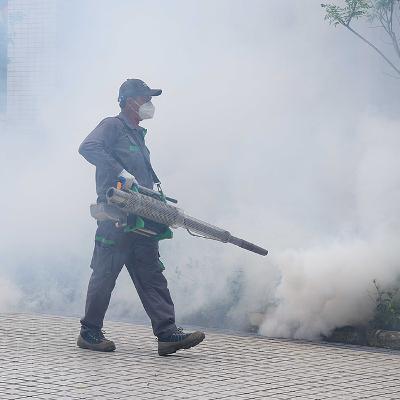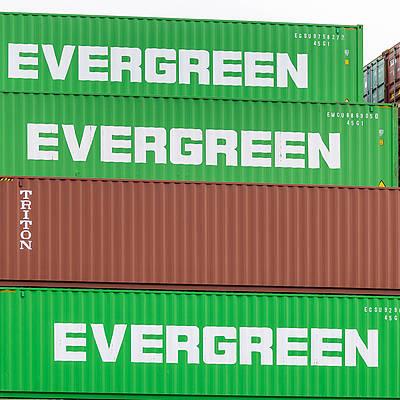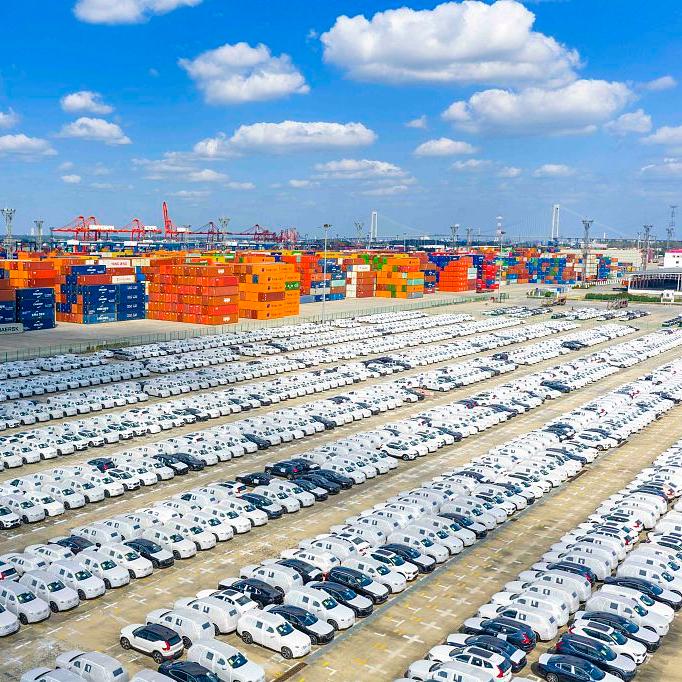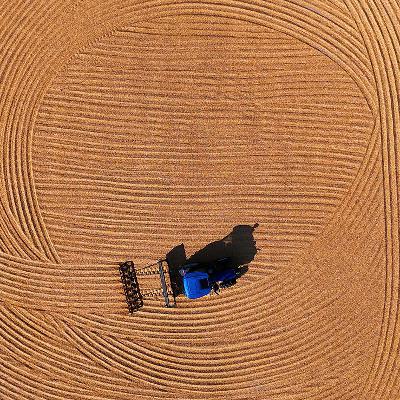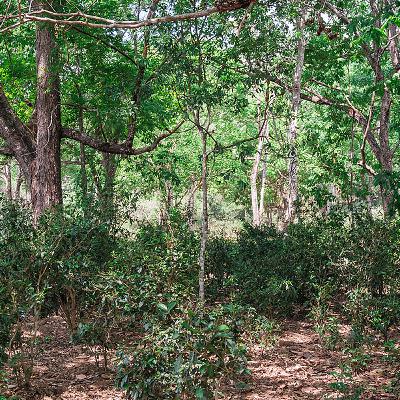Discover Climate Watch
Climate Watch

Climate Watch
Author: China Plus
Subscribed: 5Played: 53Subscribe
Share
© Copyright @ China Plus
Description
Climate Watch delves into the pressing climate tipping points that loom large on the horizon. We deliver the latest updates on the climate change landscape and shed light on the urgent need for collective efforts in tackling climate change. By talking to locals, experts, and activists from across the world, we aim to inspire and empower listeners to be part of the solution. Join our weekly journey into the heart of climate change for a sustainable future for generations to come.
137 Episodes
Reverse
Cities are home to over half of the world's population. With rapid urban growth, it becomes increasingly crucial for cities not just to survive, but to build resilience for future generations.
The 2025 Global Award for Sustainable Development in Cities, or Shanghai Award, offers a glimpse of that diversity. The award is jointly organized by UN-Habitat and the Shanghai Municipality. The winners – Algiers, Al Madinah, Bogotá, Espoo, and Incheon – each show a unique pathway toward sustainable urban development.
Zhao Ying speaks with Bai Xuemei, Professor of Urban Environment and Human Ecology at the Fenner School of Environment and Society, Australian National University, to explore what we can learn from their experiences.
CGTN Radio and PKU's C Force Lab bring together Professor Wang Binbin, Doctor Xie Zongxu and Reporter Yu Tianyu to explore how traditional wisdom can offer fresh pathways for global climate governance.
In this special live recording of Climate Watch at Peking University, together with Beyond Climate Dialogue of Peking University’s Institute of Carbon Neutrality, we feature insights from Professor Zhang Haibin, Vice Dean at the School of International Studies and the Institute of Carbon Neutrality at the University, Dr. Wang Binbin, Research Professor and Founder of C Force Lab at the Institute of Carbon Neutrality, and Dr. Muhammad Khalid Hameed with the Beijing Jingwa Agricultural Science and Technology Innovation Center. The episode delves into the complexities of global climate governance, the critical importance of adapting to climate change, and the role of joint international efforts. Emphasizing the need for education, early warning systems, and technology transfer, the conversation also explores China's role in climate governance and the importance of collective international action.
With COP30 in full swing in the heart of the Amazon rainforest, in the city of Belém, Brazil, negotiators are once again debating critical issues: who will pay for climate action, especially adaptation, as extreme weather events become more frequent and their links to climate change increasingly clear? What responses should we put in place—and where are we headed as a global community? We’re seeing familiar agendas on the table, with heated arguments but only modest steps forward. Are COP meetings still relevant today? And how can we make better use of this global gathering? Fei Fei unpacks these questions with Teng Fei, Professor and Deputy Director of the Institute of Energy, Environment and Economy, Tsinghua University, and Antoine Oger, Executive Director at the Institute for European Environmental Policy based in Brussels.
Climate change is increasingly shaping our health. According to the latest Lancet Countdown report, it is already contributing to millions of premature deaths each year through extreme heat, air pollution, wildfires, and the spread of infectious diseases. The report offers one of the most comprehensive assessments to date of how climate and public health are deeply intertwined. In this episode, Fei Fei speaks with Cai Wenjia, Director of the Lancet Countdown Regional Centre for Asia, about the report’s latest findings in China and what they mean for the future of public health.
China's national carbon market is still young. But experts see a clear path forward. In this episode, we explore the challenges it faces, and the strategies that could help it drive progress toward reducing CO2 emissions and supporting a greener economy.
From national policies to corporate innovation and our daily habits, carbon trading is transforming how China tackles climate change. Let's uncover how industries cut emissions while boosting profits, how universities shape the next generation of green talent, and how individuals earn rewards for eco-friendly choices.
From companies turning pressure into profit, to individuals earning rewards for low-carbon lifestyles, and students preparing for a greener future—this podcast reveals how carbon trading went from an obscure idea to a powerful driver of China's green transition.
China leads the world in NEV development that's vital to cutting transport emissions and achieving carbon neutrality. But the road is far from smooth. From massive spending to hidden supply-chain emissions and data gaps, this program dives into the struggles behind the green transition.
China is undergoing a monumental shift to meet its dual carbon goals, transforming its entire energy and industrial landscape. The country now boasts the world's largest carbon market and leads the globe in renewable capacity, having hit its 2030 NDC targets ahead of schedule. In this episode, Zhou Fang spoke with Wu Changhua, President of the Global Climate Academy and Chair of the Governing Council of the Asia Pacific Water Forum. They unpack the systemic drivers powering this transition—from the groundbreaking national carbon market that now spans several key industries to a unified green finance system mobilizing trillions. The conversation also goes to the frontlines of climate adaptation—covering China's nationwide push to fortify its coasts and cities against rising seas and heatwaves. Finally, they explore how strong governance and policy innovation are turning climate pledges into action, positioning China as a pivotal force in global climate efforts.
China is moving fast to make its trade greener. A new guideline from the Ministry of Commerce lays out how the country plans to integrate low-carbon practices into everything from manufacturing and logistics to finance and carbon markets. The policy also signals a shift in how China sees its economy where the green transition is not a burden, but a new driver of growth. In this episode, we unpack what’s behind China’s green trade strategy, what it could mean for exporters and global partners, and how it might reshape the rules of international trade with Assistant Professor of Economics Li Lun with Peking University.
From bold national targets to street-level change, China is accelerating its shift to green transport.
In Guangzhou, we meet car owners, business people, and climate experts who are working hand-in-hand toward the “dual-carbon” goals.
As China strives toward its ambitious climate goals, transportation is taking center stage in its carbon-cutting effort. In Guangzhou, we explore how people are rethinking mobility and embracing a greener future.
China’s renewable energy transition faces significant challenges, including high costs, technological bottlenecks, talent gaps, and environmental concerns. In this program, we examine the obstacles hindering the advancement of wind, hydrogen, and solar energy solutions, and how these challenges may influence the path to carbon neutrality.
From offshore wind farms in Shanghai to hydrogen industrial parks in Changzhou, China is laying the groundwork for a greener future. Here we meet the engineers, scientists, and local workers who are turning wind, solar, and hydrogen into renewable energy solutions.
Energy transition lies at the heart of China’s journey toward its carbon neutrality goal. How much do businesses and individuals know about clean energy? And what attitudes do they hold toward its promotion? In this episode, we head to eastern China to find out people’s thoughts on clean energy.
In this episode, Fei Fei explores the untapped potential of geothermal energy. While Iceland has long been a global leader in harnessing the Earth’s heat, China is now beginning to take a closer look at this often-overlooked renewable resource. Featuring Rósbjörg Jónsdóttir from the Iceland Renewable Energy Cluster and Associate Professor Shu Biao from Central South University, the episode dives into geothermal energy’s potential in China and how it could play a bigger role in the country’s green transition. Photo/ Aiken Spring in northwest China's Qinghai Province
As China faces rising temperatures, extreme weather, and shifting rainfall patterns, its agrifood system must adapt — while also cutting greenhouse gas emissions. In this episode, Fei Fei explores the challenges and opportunities for Chinese agriculture with insights from Professor Zheng Dawei and world-renowned agricultural expert Professor Fan Shenggen. From innovative farming techniques to nationwide adaptation strategies, we discuss how China’s farms can feed the nation and fight climate change.
China has just hosted the Global Leaders’ Meeting on Women, marking 30 years since the landmark Beijing Declaration and Platform for Action. As the world revisits the goals of gender equality, one question stands out: how can women’s empowerment and climate action work together? In this episode of Climate Watch, Fei Fei speaks with Wang Binbin, Associate Research Professor at Peking University’s Institute for Carbon Neutrality, about her report Synergy of Climate Action and Gender Equality in China. Through her research, Binbin explores how Chinese women are adapting to and driving climate solutions.
You can read her report here: https://carbon.pku.edu.cn/kxyj/kydt2/yjbg/d04a089af0cf431caa55605437e00711.htm
Climate Watch and Beyond Climate Dialogue collaboration:
https://radio.cgtn.com/podcast/news/5/Looking-back-to-move-forward-what-ancient-wisdom-can-teach-us-about-climate-action-Part-1/2715521
On Jingmai Mountain in Yunnan Province, ancient tea forests tell a story of tradition, ecology, and resilience. The local Bulang and Dai people have cultivated tea in harmony with nature for centuries, creating biodiverse forests that yield unique, aromatic Pu’er tea. Today, communities are reviving traditional methods while embracing innovation—using new business models and digital tools help younger generations preserve culture and connect with global markets. This episode explores how ancient wisdom meets modern sustainability, offering lessons in ecological stewardship, cultural heritage, and resilient rural economies.






